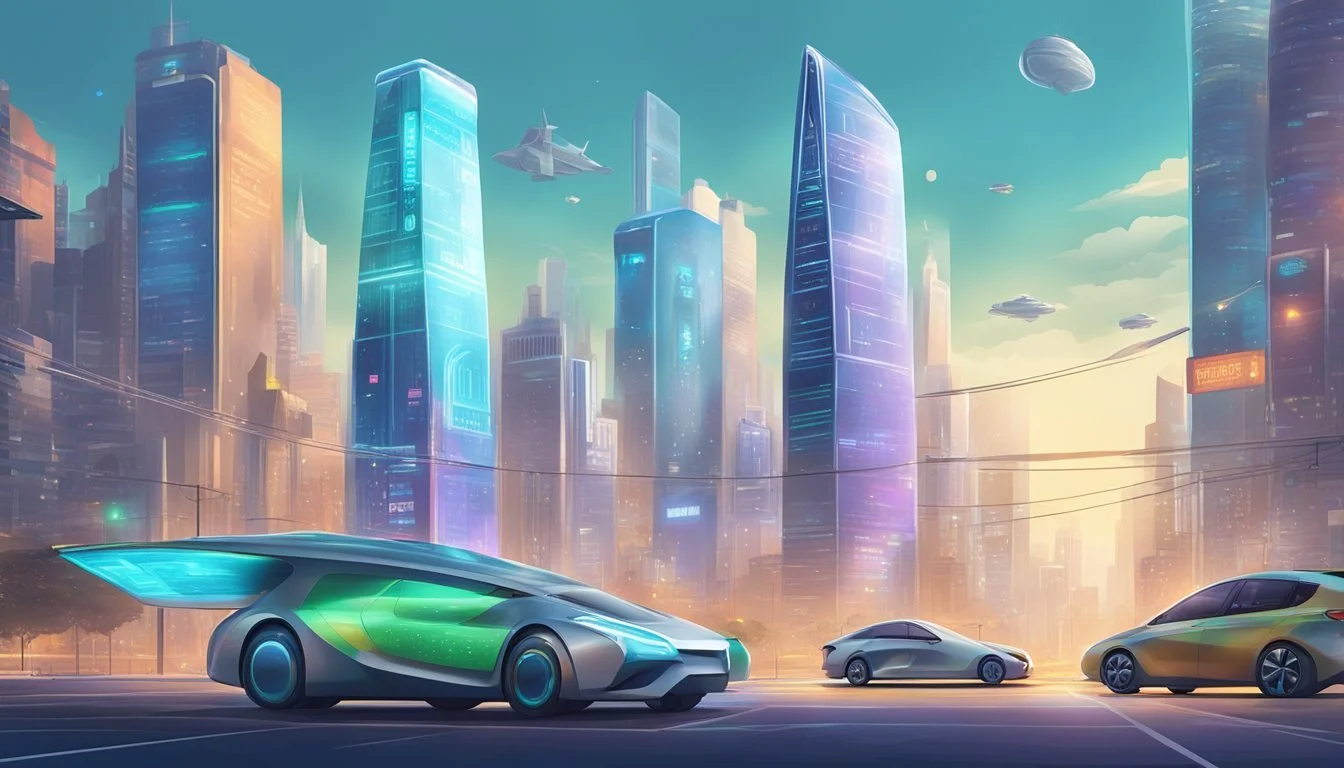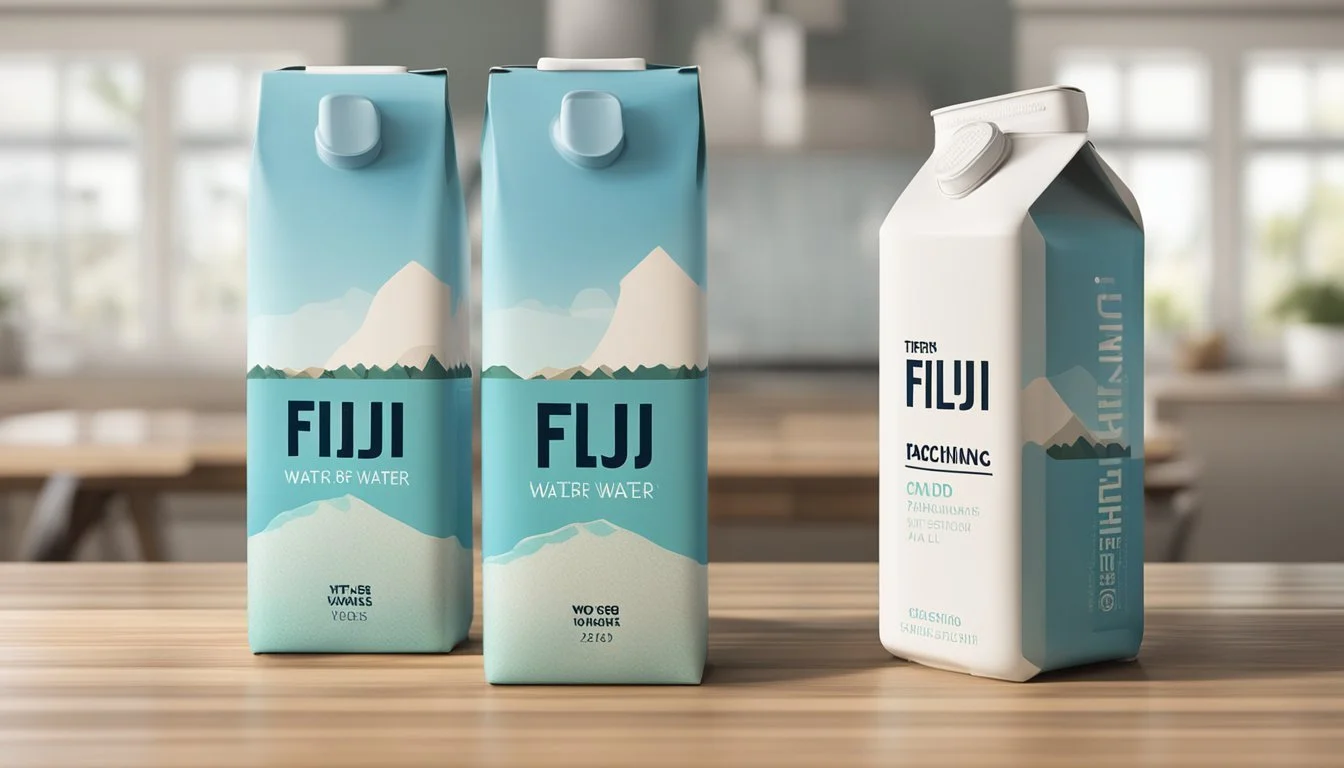Boxed Water vs. Fiji
Comparing Environmental Impact and Taste
When it comes to staying hydrated, consumers have a multitude of choices, and the debate between bottled water fans has shifted to include a new contender: boxed water. Traditional bottled water, often contained in plastic, has been a staple for convenience and portability. Among these, Fiji Water has distinguished itself as a premium brand, touting its natural artesian source and distinct taste. On the other hand, boxed water presents an eco-friendlier option, with packaging that claims to be more sustainable and better for the environment than plastic bottles.
The comparison between Boxed Water and Fiji Water isn't just a matter of taste preference or brand loyalty; it taps into broader concerns about health, environmental impact, and the ethics of water commodification. While Fiji Water boasts a unique mineral profile and purity derived from its remote source in the South Pacific, Boxed Water emphasizes its reduced carbon footprint and the use of renewable resources in its packaging.
Consumers face a complex decision navigating not just what water they prefer, but also which values they prioritize. The choices they make reflect their stance on sustainability, health, and the environmental responsibility of manufacturers. In this comparison between Boxed Water and Fiji Water, the merits and drawbacks of each are as multifaceted as the water market itself, demanding a closer look to discern which product may be better suited to individual preferences and ecological considerations.
Overview of Bottled Water
Bottled water has become a fundamental part of consumer choices in hydration, offering convenience and perceived quality benefits. The landscape of bottled water has evolved significantly, influenced by environmental concerns and shifts in consumer behavior.
History of Bottled Water
The origins of bottled water date back centuries, with evidence of water bottling practices in the Holy Roman Empire where glass bottles were used. It has since transitioned from a luxury commodity to a daily essential for many. The bottling of water started as a way to provide mineral water for therapeutic purposes, often sourced from natural springs. The industry saw significant growth in the 19th and 20th centuries as safety concerns regarding tap water emerged and bottling technology advanced.
Current Bottled Water Landscape
Today's bottled water market is characterized by a range of options, from single-use plastic bottles to sustainable alternatives such as Boxed Water with cartons composed of 74% paper, 1% aluminum, and 25% plastic to maintain waterproof integrity. Fiji Water, known for its artesian water, often comes in plastic bottles, which, while convenient, pose environmental challenges due to the production and disposal processes associated with plastic.
The demand for bottled water continues to rise, challenging manufacturers to innovate and address the environmental impact of their packaging. The industry faces an ongoing tension between providing accessible, safe drinking water and minimizing the ecological footprint of production and distribution. Consumers increasingly value the source and purity of water along with the sustainability of packaging, making the competition in the bottled water industry about more than just taste and hydration.
Boxed Water and Fiji Water Defined
When choosing between Boxed Water and Fiji Water, consumers are presented with two distinct options. Boxed Water is known for its eco-friendly packaging, while Fiji Water is recognized for its natural artesian source.
What Is Boxed Water?
Boxed Water refers to a brand of bottled water that differentiates itself from conventional plastic bottles by offering its product in cartons. The company emphasizes sustainability, with cartons made from 74 percent paper. These cartons are a blend of paper, aluminum, and plastic film; the composition ensures durability and maintains the water's purity. Boxed Water's packaging is designed to reduce plastic waste and to be more recyclable compared to traditional single-use plastic bottles.
What Is Fiji Water?
Fiji Water is a brand of bottled water sourced from an artesian aquifer located in Fiji. The brand is known for its distinct square-shaped, single-use plastic bottles. Fiji Water claims its product is rich in minerals and naturally occurring electrolytes, which are derived from the water filtering through volcanic rock. Environmental concerns have been raised regarding Fiji Water's use of plastic in packaging, posing potential issues for ecosystem health due to plastic waste.
Environmental Implications
When considering the environmental implications of Boxed Water and Fiji Water, it's important to examine the packaging, carbon footprint, source impact, and their roles in plastic pollution.
Packaging Materials
Boxed Water containers are composed of 74% paper, 1% aluminum, and 25% plastic, designed to maintain waterproof integrity and complete sealing. Fiji Water, traditionally bottled in plastic, utilizes single-use plastic containers that have been criticized for contributing to plastic pollution. While both products offer some level of recyclability, their materials present distinct challenges and benefits in environmental sustainability.
Carbon Footprint
The carbon footprint associated with the production and transportation of bottled water includes the extraction of raw materials, manufacturing of the packaging, and distribution. Aluminum and glass are often perceived as more energy-intensive to produce than plastic, but they offer better recycling efficiency. Boxed Water's mostly paper-based packaging represents a potentially lower carbon footprint compared to the single-use plastic bottles used by Fiji Water, assuming that the supply chain and production processes are optimized for energy efficiency.
Environmental Impact of Water Source
Fiji Water sources its product from a natural artesian aquifer in the Fiji Islands, which entails a significant environmental impact due to transportation from its island source to global markets. Boxed Water promotes the use of renewable trees in its paper material, but the impact of this practice depends on responsible forest management and the sustainability of supply chains.
Plastic Pollution and Alternatives
Single-use plastics, commonly used in bottled water packaging, contribute to microplastics proliferation and are a major source of ocean and land based pollution. Efforts to mitigate this issue involve using recyclable materials and reducing the reliance on plastic entirely. Boxed Water's alternative, which utilizes a paper-based carton, suggests a shift away from plastic; nevertheless, the environmental benefit hinges on the end-of-life processing where proper recycling practices are crucial.
Each type of packaging material—be it plastic, paper, aluminum, or glass—carries its own environmental benefits and trade-offs, heavily influenced by consumer behavior and local recycling capabilities.
Health and Safety Considerations
When comparing Boxed Water and Fiji bottled water, health and safety are pivotal. Consumers should evaluate potential contaminants and understand the regulatory standards governing bottled water.
Water Contaminants
Contaminants in water can range from microplastics to heavy metals such as lead, arsenic, and mercury. Previous studies have shown that 93% of bottled water tested contained microplastics. Concerning Fiji Water specifically, legal action was taken against the brand due to microplastic contamination. Boxed Water emphasizes its product being free from such pollutants, touting the cleanliness of its water.
Legislation ensures that spring water—often the source for bottled water—meets stringent safety criteria. The Environmental Protection Agency (EPA) mandates limits for over 90 contaminants in public drinking water, including arsenic, chlorine, and lead. For bottled water, including Fiji and other brands, the Food and Drug Administration (FDA) standards mirror the EPA's.
PFAS chemicals, a broad group of human-made substances which include PFOA and PFOS, are known for their presence in various consumer products and are a growing concern. Both Boxed Water and Fiji would fall under scrutiny to ensure these chemicals are within safe limits. Fluoride levels are another health consideration, typically added to municipal water for dental health benefits, but naturally occurring in some water sources at potentially harmful levels.
Bottled Water Regulations
Bottled water companies are required to adhere to regulatory standards for safety and quality:
FDA standards apply to bottled water products, which must not contain any contaminants at levels harmful to health.
EPA regulations for tap water serve as a benchmark for the quality of bottled water as well.
The Environmental Working Group advocates for stricter regulation and more transparent reporting from bottled water companies regarding contaminants.
Boxed Water declares that their product is tested for much more than just the FDA's required tests, indicating a proactive approach to water quality. Fiji Water, extracted from an underground aquifer, must also comply with these regulations, regularly testing for contaminants like heavy metals and implementing processes to minimize arsenic levels.
Through adherence to these regulations and frequent testing, both Boxed Water and Fiji strive to ensure the safety and quality of their water.
Comparative Analysis of Boxed Water and Fiji Water
In evaluating Boxed Water and Fiji Water, the discourse is hinged on three main categories: taste profile, nutrient content, and packaging convenience. Each of these aspects plays a vital role in consumer preference between the two brands.
Taste Profile
Consumers often report Fiji Water as having a smooth, soft taste, attributed to its natural filtration through volcanic rock which adds silica, giving it a distinctive feel. Boxed Water, while praised for its clean taste, may lack the unique mineral profile that gives Fiji its signature flavor. The difference in taste between the two brands can significantly influence consumer choice.
Nutrient Content
Fiji Water boasts a significant mineral composition, including electrolytes like calcium and magnesium. This electrolyte presence not only contributes to Fiji Water's taste but also to its hydrating properties.
Mineral Boxed Water Fiji Water Calcium Low Moderate Magnesium Low Moderate
Boxed Water, though less known for its mineral content, focuses on offering a pure hydration experience without enhanced electrolyte additives.
Packaging and Convenience
Packaging is a stark differentiator between Boxed Water and Fiji Water. Boxed Water is notable for its commitment to sustainability, utilizing paper-based cartons, which are predominantly derived from responsibly managed forests. This method aims to reduce plastic waste, making it an eco-friendly option.
Aspect Boxed Water Fiji Water Material Paper-based cartons Plastic bottles Environmental Impact Lower carbon footprint, recyclable Higher carbon footprint, recyclable Convenience Easy to stack and store, less weight Portable, but heavier
Fiji Water, on the other hand, is packaged in plastic bottles, which, despite being recyclable, contribute to environmental concerns due to plastic pollution. The convenience of Fiji Water lies in its portability and the familiarity of bottled water's grab-and-go nature.
Consumer Perspectives and Trends
In examining Boxed Water and Fiji Water, key factors such as market trends and public perception play crucial roles in understanding consumer preferences and behavior.
Market Trends
The bottled water market segment has seen a shift with sustainability becoming a significant purchasing driver. Products like Boxed Water Is Better have harnessed this trend, offering a package with 92% plant-based materials, appealing to environmentally conscious consumers. Meanwhile, Fiji Water, with its single-use plastic bottles, has raised concerns among the same demographic. Despite this, sales on platforms like Amazon indicate that Fiji Water's popularity remains high, suggesting that its product advantages may still resonate with a vast audience.
In terms of broader market dynamics, the United States remains a prominent consumer of bottled water. Water brands frequently emphasize the purity and uniqueness of their sources to gain a competitive advantage. For instance, Fiji Water is known for sourcing from an aquifer in Fiji, which has aided its favorability, as seen in surveys where it has garnered a high net favorability rating.
Public Perception
Public perception of bottled water brands is influenced by multiple factors, including product quality, brand reputation, and environmental impact. Experts and websites reviewing bottled water have pointed out that while Fiji Water is seen as premium, the environmental repercussions of its plastic bottles detract from its image. Conversely, Boxed Water has received positive attention for its eco-friendly packaging, aligning with the growing consumer trend towards sustainable products.
Surveys and studies, such as one conducted by Morning Consult, show Fiji Water as a favorite amongst U.S. adults. However, this favorability is juxtaposed with the growing environmental concerns, which can impact brand loyalty over time. Companies are motivated to innovate and improve sustainability credentials to maintain relevance amid changing consumer values. Boxed Water's high renewable content packaging may not yet match the favorability ratings of market leaders like Fiji, but it suggests a growing niche market prioritizing environmental concerns over traditional brand preferences.
Sustainability and Corporate Responsibility
In the contest between Boxed Water and Fiji Water, their approaches to sustainability and corporate social responsibility highlight promising efforts and challenges in eco-friendliness and ethical business practices. Both companies have taken steps to address environmental concerns, yet the effectiveness of these efforts varies.
Sustainable Practices
Boxed Water distinguishes itself with packaging made from 74% paper, which they assert is a renewable resource. Their cartons also consist of 1% aluminum and 25% plastic to maintain the integrity of the container and prevent leaks. The company has built its brand around the goal of providing a more sustainable alternative to traditional plastic bottles.
Fiji Water, meanwhile, operates with a commitment to reducing its carbon footprint and has invested in renewable energy projects and rainforest conservation efforts to offset the environmental impact of its product transportation and production.
Sustainable Product Examples:
Boxed Water containers aim to increase the use of paper, a renewable resource, in packaging.
Fiji Water has participated in projects with the aim to become carbon negative.
Corporate Environmental Commitments
Corporate responsibility initiatives by Boxed Water include carton recycling programs, despite the mixed material design of their cartons which can complicate the recycling process. The brand promotes the use of reusable water bottles and supports reforestation efforts.
Fiji Water states its engagement in various environmental actions such as the Fiji Water Foundation which contributes to clean water access and environmental conservation. However, concerns of greenwashing have been raised regarding how bottled water companies represent their environmental commitments.
Environmental Commitment Highlights:
Boxed Water:
Runs carton recycling programs and supports reforestation.
Encourages consumers to shift towards reusable water bottles.
Fiji Water:
Has established the Fiji Water Foundation for environmental and clean water initiatives.
Investments in renewable energy and carbon offset projects.
Both Boxed Water and Fiji Water make claims of environmental responsibility but navigating these claims requires scrutiny of their actions and overall contribution to sustainability.
The Future of Bottled Water
The bottled water industry is at a crossroads, where consumer demand and environmental impact are prompting rapid innovation and potentially, legislative change.
Innovations in the Industry
The industry sees a significant shift towards more environmentally friendly packaging solutions. Companies are now investing in alternative materials to reduce reliance on single-use plastic bottles. One such innovation is Boxed Water, which uses 74% paper in its cartons. Federal government interest in renewable resources may further encourage the adoption of sustainable materials in packaging.
Material Used Percentage Paper 74% Aluminum 1% Plastic 25%
Aside from materials, advancements in filtration and purification methods are also on the rise, potentially reducing the need to transport water over long distances, which affects the industry's carbon footprint. Brands like Fiji have already established a reputation based on their natural filtration processes, which might become a standard as customers increasingly value purity tied with ecological responsibility.
Legislation and Environmental Policies
Policies directed by the federal government are likely to introduce stricter regulations on bottled water companies, especially concerning the use of plastic. The shift could see more stringent standards on recyclability and the carbon footprint of production. Environmental policies may catalyze change by incentivizing the industry to adapt to renewable resources and more sustainable business models. For instance, companies might be encouraged—or mandated—to adopt packaging that is fully biodegradable or significantly less damaging to ecosystems.
The industry also has to prepare for possible restrictions on water sourcing to protect natural reserves, which would greatly impact brands like Fiji that rely on access to specific sources. As policymakers recognize the need for sustainable practices, the bottled water industry may experience a transformative period where innovation is not just beneficial for business but a requirement for survival.
Conclusion and Recommendations
When comparing Boxed Water and Fiji bottled water, several factors need to be considered, including environmental impact, health implications, and convenience.
Environmental Impact:
Boxed Water packaging is more sustainable than Fiji's single-use plastic bottles.
Boxed Water uses cartons made mainly from paper, a renewable resource.
Fiji Water, while sourced from a sustainable aquifer, contributes to plastic pollution.
Health Implications:
Both Boxed Water and Fiji Water offer pure water, essential for hydration.
Fiji Water is naturally filtered through volcanic rock, imparting minerals to the water.
Concerns exist over the potential for plastic bottles, like those of Fiji Water, to leach chemicals.
Convenience:
Fiji Water is available in various sizes, which may offer more convenience for on-the-go hydration.
Boxed Water's design is less conventional, which might not fit standard cup holders or vending machines.
Recommendations:
Individuals should consider the impact of their purchases on the environment. Boxed Water may be the better option from a sustainability perspective.
For those prioritizing taste and mineral content, Fiji Water may be preferable.
Consumers should weigh the importance of convenience versus ecological footprint when making their choice.
In conclusion, each person's choice will depend on their priorities, be it environmental concerns, health benefits, or convenience. Both options serve the fundamental purpose of providing hydration but do so with different implications for the individual and the planet.







